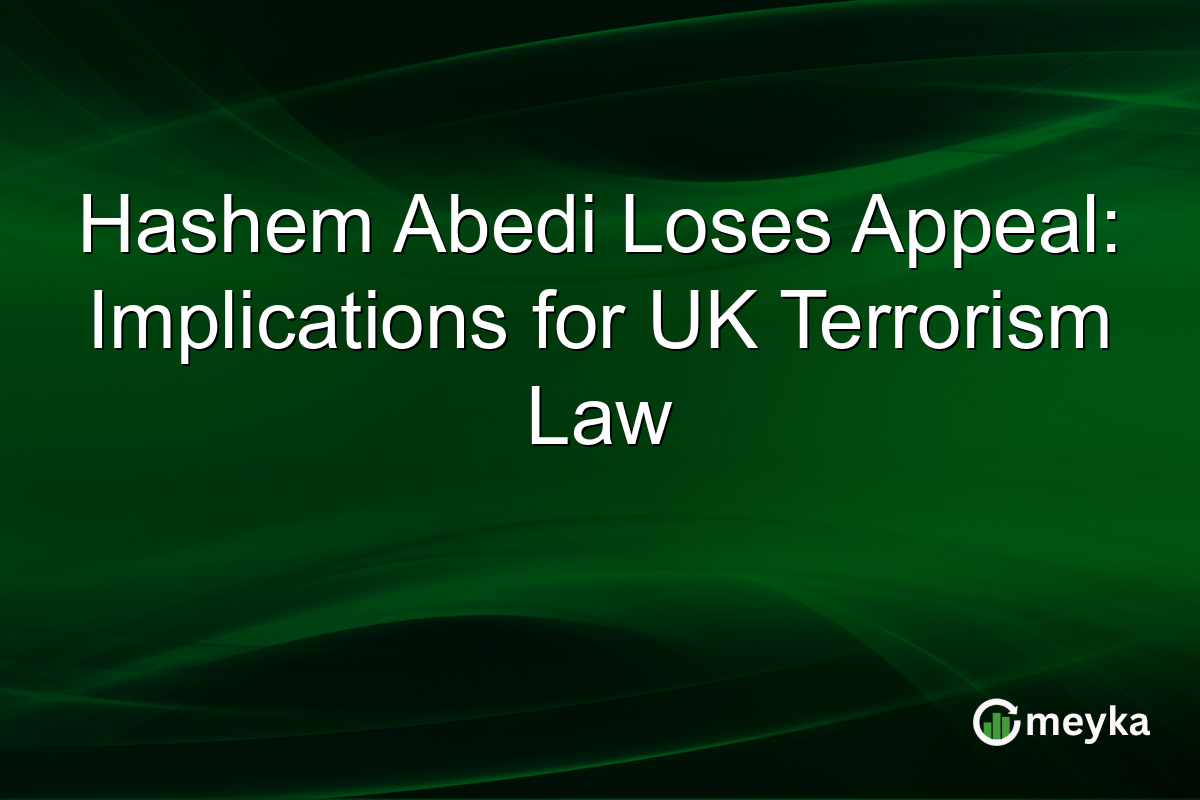Hashem Abedi Loses Appeal: Implications for UK Terrorism Law
The recent decision by the Court of Appeal to reject Hashem Abedi’s appeal has stirred significant discussion in legal and government sectors across the UK. Abedi, who played a key role in the 2017 Manchester Arena bombing, sought to overturn his sentencing. This rejection has important implications for UK terrorism law and provides insights into the handling of future terror-related cases.
Background of the Manchester Arena Bombing
In May 2017, a suicide bomber attacked the Manchester Arena during an Ariana Grande concert, resulting in the tragic death of 22 people and injuring hundreds more. Hashem Abedi, brother to the bomber, was found guilty of helping to prepare the attack, leading to a life sentence in 2020. His appeal aimed to challenge the harshness of this sentencing, citing various legal arguments.
The Court of Appeal’s Decision
On October 18, 2025, the Court of Appeal dismissed Abedi’s appeal. The court found the original sentencing was justified given the gravity of the crime and his significant involvement. The decision was met with widespread media attention, particularly due to the ongoing public and governmental focus on combating terrorism. This highlights the judiciary’s firm stance on severe punishments for terrorism-linked activities.Read more.
Implications for UK Terrorism Law
Abedi’s case has become a reference point in discussions regarding UK terrorism law. The rejection of his appeal underscores the legal system’s commitment to holding those involved in terrorism accountable. This decision might influence future legislative changes, encouraging stricter laws and heavier penalties to deter potential threats.
Public and Political Reaction
The reaction from the public and politicians has been largely supportive of the court’s decision. Many view it as a step towards ensuring justice for the victims and their families. Politicians have used this case to advocate for tougher counter-terrorism measures, indicating potential legislative shifts in the future.See reactions.
Final Thoughts
The Court of Appeal’s decision to uphold Hashem Abedi’s sentencing sends a clear message about the UK’s stance on terrorism. By reinforcing strict penalties, the legal system aims to prevent future attacks and provide justice for victims. As the UK continues to navigate the complex landscape of terrorism law, this case stands as a pivotal moment that may shape future legal and political strategies against terrorism.
FAQs
Hashem Abedi appealed his sentencing, arguing it was excessively severe. His legal team presented various technical arguments, but the court upheld the original decision, focusing on the crime’s seriousness.
The decision reinforces the precedent for strict sentencing in terrorism cases, likely influencing the legal handling of similar future cases by emphasizing accountability and deterrence.
The public largely supports the decision, viewing it as justice for the victims. There is also a push for stronger counter-terrorism measures to enhance UK safety.
Disclaimer:
This is for information only, not financial advice. Always do your research.






